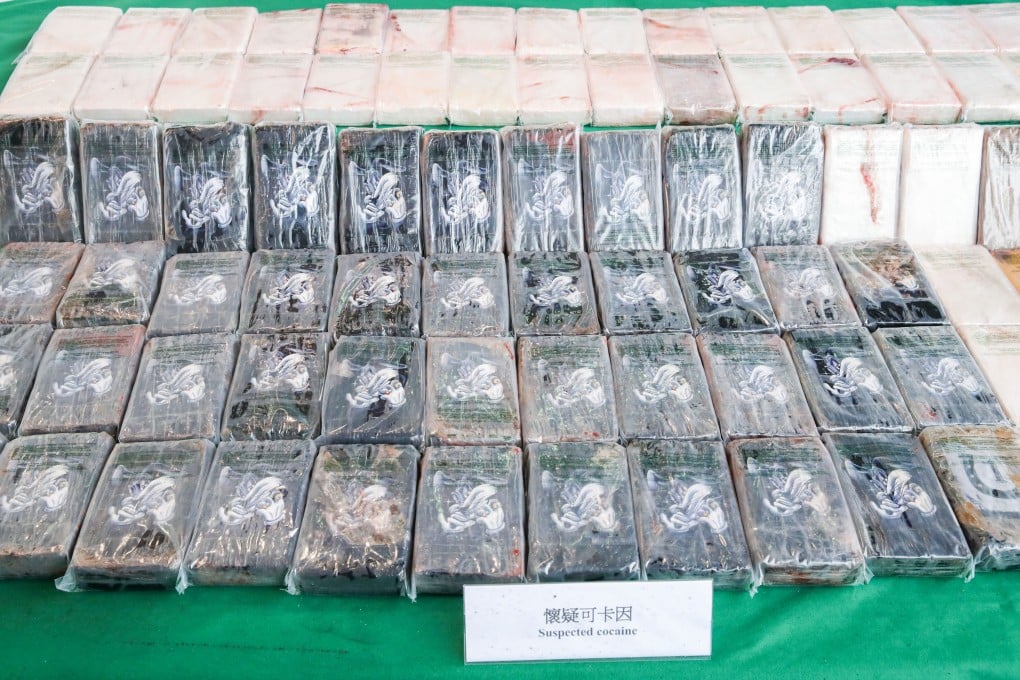Hong Kong customs arrests 2 teenagers, seizes HK$110 million worth of cocaine hidden in electric transformer from Costa Rica
- Officers found 100 bricks of suspected cocaine, each weighing 1.2kg, in 10 metal boxes when investigating an electric transformer in February
- Two male students, aged 14 and 15, arrested in San Tin and believed to be controlled by triads, customs says

Hong Kong customs officers have arrested two teenagers after confiscating HK$110 million (US$14 million) worth of cocaine concealed in an electric transformer that arrived from Costa Rica.
Lee Ka-ming, head of customs’ drug investigation group, on Saturday said officers had found 100 bricks of suspected cocaine, with a total market value of HK$110 million, in 10 metal boxes when they were investigating an electric transformer on February 26. Each brick weighed 1.2kg.
“The opening of the transformer was sealed with more than 100 screws and it was filled with 750 litres of oil. After draining the oil, we further found that its components were wrapped with many layers of metal plates. It took us 10 hours to retrieve the cocaine inside,” he said.

Two male students, aged 14 and 15, were arrested in San Tin on Thursday, Lee said, adding that he believed they were controlled by triads. They have been charged with drug trafficking and will appear at Fanling Court on Monday.
A 49-year-old woman, reported to be an employee of a logistics company, was also arrested in Kwai Chung on Friday. Lee said she was responsible for the storage of the drugs, adding that customs was investigating whether she was associated with triads.
The arrests came as customs reported an increase of more than 90 per cent in the amount of drugs confiscated in the past three months compared with the same period last year. Cocaine made up 307kg of a total of 982kg of drugs seized, up from 179kg in the same period in 2021.
“Syndicates have been changing drug trafficking methods during the coronavirus pandemic, from relying on people bringing in small amounts at a time to shipping in large quantities of [drugs] through air and sea,” Lee said.